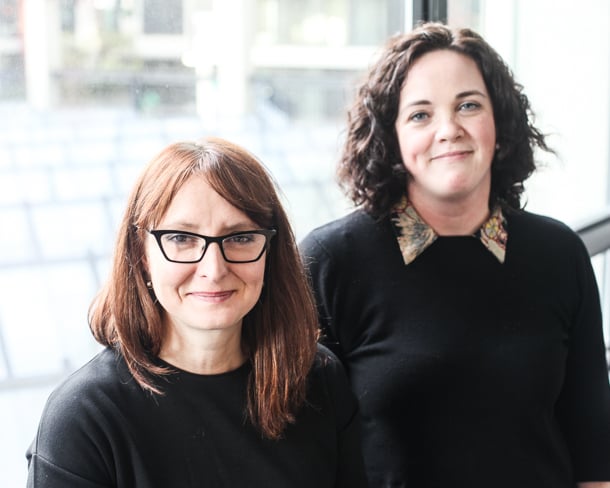As many as 30,000 Vancouver families may qualify to step up from renting to home-owning under a program that housing staff will urge city council to approve next Wednesday.
Even if council follows through on the hazy plan to boost affordable home-ownership in the city, however, the number of new homes actually made available in a pilot phase would be just one one-hundredth of that number.
The Affordable Homeownership Pilot Program that chief housing officer Mukhtar Latif will present to council offers little detail on how it would operate, but proposes to limit its assistance.
Only permanent residents or citizens who have been living and working in the city for five years would qualify at all. Only households earning up to $67,540 would qualify to purchase one-bedroom units; two- and three- bedrooms (planned to be half the stock) would be limited to households earning up to $96,170.
Vancouver city staff have spent much of the last year scouring the globe for solutions to the housing affordability dilemma posed by Vancouver's rising land prices and stagnating wages.
They examined possible models from the near -- Whistler and Calgary -- to the far, in the United States and United Kingdom, where other cities have faced similar problems.
"The lack of local housing options has the effect of encouraging less sustainable and active transportation choices, undermining local employment, eroding social diversity and potentially increasing the polarization of incomes in Vancouver," Latif's submission to council notes.
Many of the answers Latif and his colleagues examined involve some form of subsidy to reduce down payment requirements on homes, or requiring owners to share some of the increase in equity once a home is re-sold later.
The staff report doesn't come down clearly in favour of any particular form of support, but does set a goal of providing an "option for moderate income, working households to stay in Vancouver."
"In the end, we'll give those families who want to stay in our city some security of tenure," said Coun. Raymond Louie in a phone interview. "They get to stay, and end up contributing more to the community and being part of it."
Details remain to be determined
But while a hundred times as many moderate-income working families may be eligible for the pilot project, according to Statistics Canada's income figures, only 300 units will be actually built as part of the initial experiment if it is approved.
The report follows a motion last June by Non-Partisan Association councillor Melissa De Genova -- though Louie said it was in the works before that time -- to have city staff look into ways to improve the availability of affordable homeownership and examine incentives for building row houses and micro-suites that could help struggling Vancouverites stay in the city where they work.
He motion last year received unanimous support from other councillors, and on April 5 she moved to have staff bring their report forward.
"I'm encouraged we're moving forward in the right direction, but I'm disappointed that Vision Vancouver hadn't done this several years ago," she said. "I didn't see any movement forward. They're so focused on rental -- we need to increase rental stock, but not at the expense of other parts of the continuum."
"This was a slightly lower priority in the needs spectrum," Vision's Louie conceded, compared to rental, social housing and homelessness goals.
Nonetheless, he asserted, the report is actually "something we've been working on for some time," to find a model that will keep the new units it creates affordable for the long term.
And even if a majority of councillors approve Latif's outline next week, the path is far from clear.
According to the staff person in charge of the research, Vancouver's particularly strained real estate market and the complexities of existing "shared equity" models have taken a lot of time and resources to understand, in order to make sure the city gets it right, rather than offer a quick fix that fails years down the road.
"It's a huge policy shift for us to do this," explained Abi Bond, the city's director of housing policy and projects, in an interview last month. "So the legal issues, financial risks, community aspects have just taken us longer. We're not really at the point where we've got a fully baked option that we're ready to show to the public and to council yet."
To move ahead on any model, the proposal says, Vancouver will need the province to amend its municipal charter "to authorize affordable home ownership programs, including but not limited to restricted market, second mortgage and shared ownership models."
Peter Fassbender, the province's minister of Community, Sport and Cultural Development -- which is responsible for municipalities -- was not available for an interview Wednesday afternoon.
But whether the province agrees to let Vancouver proceed or not, De Genova said there is little time to lose, as young families eye cheaper pastures.
"Especially considering that the provincial government has taken action to make housing more affordable," she said, "at the city level we need to do more.
"Other municipalities are looking at affordable homeownership -- I'd like to see Vancouver be the leader and not just to follow along." ![]()
Read more: BC Politics, Housing















Tyee Commenting Guidelines
Comments that violate guidelines risk being deleted, and violations may result in a temporary or permanent user ban. Maintain the spirit of good conversation to stay in the discussion.
*Please note The Tyee is not a forum for spreading misinformation about COVID-19, denying its existence or minimizing its risk to public health.
Do:
Do not: